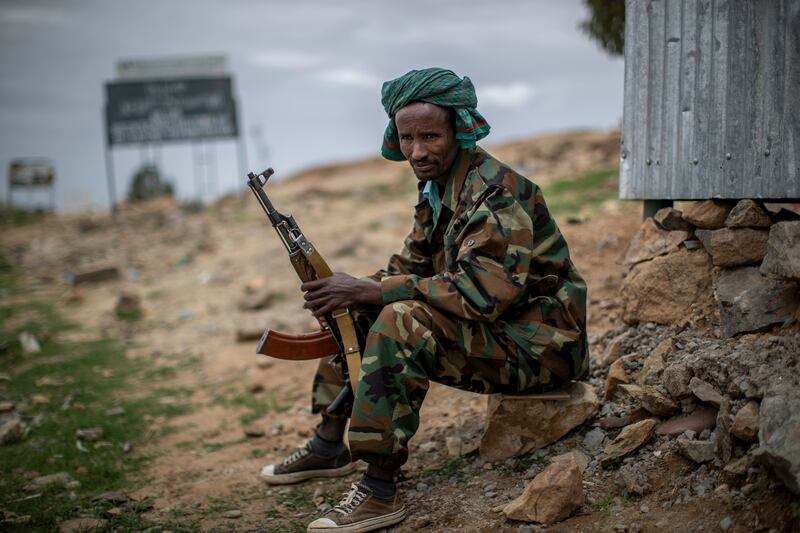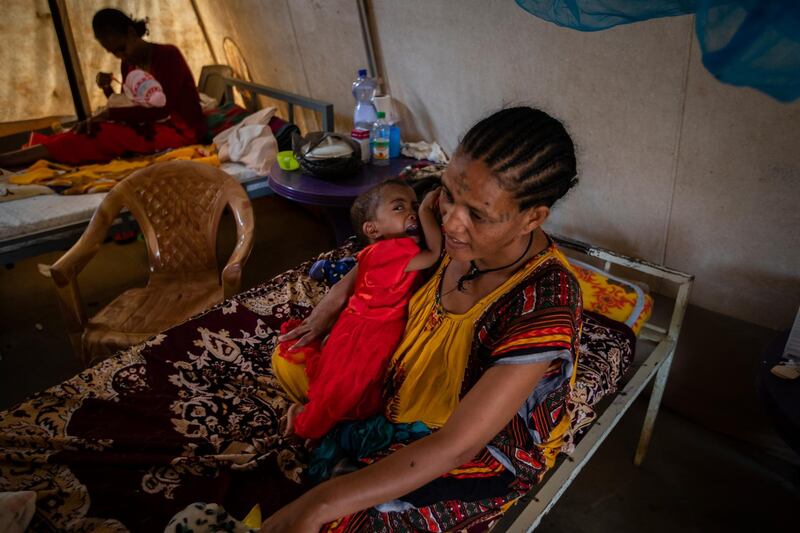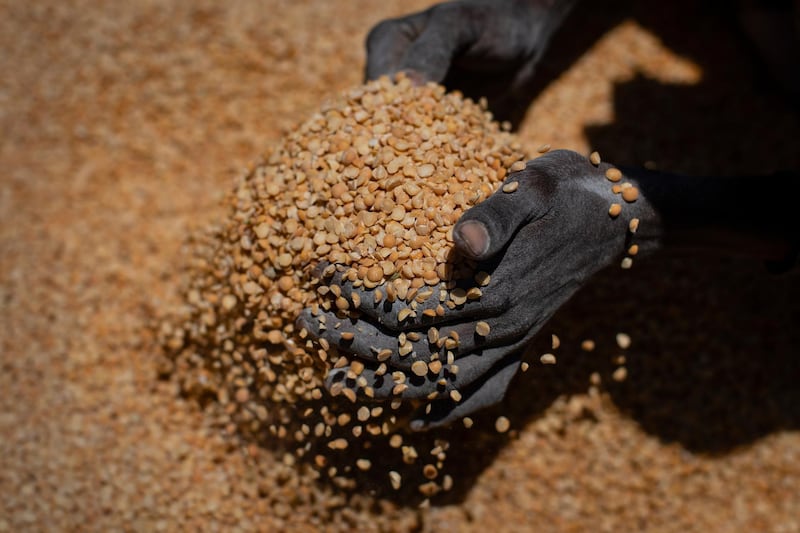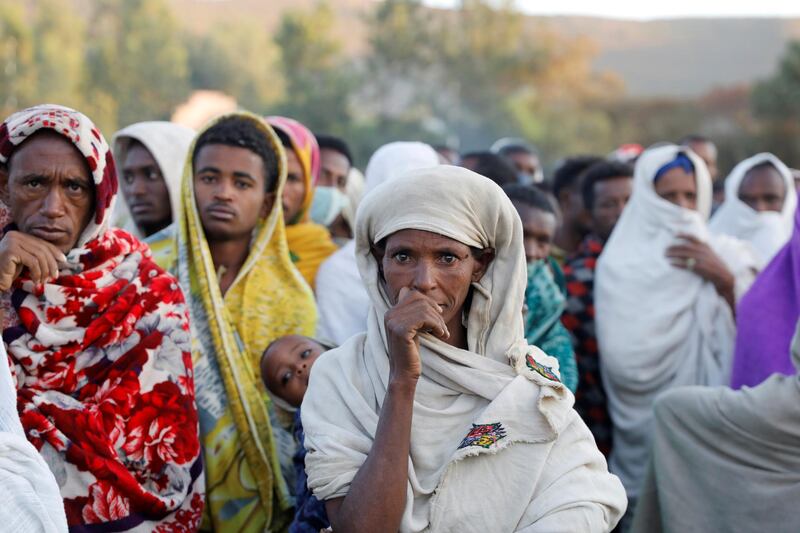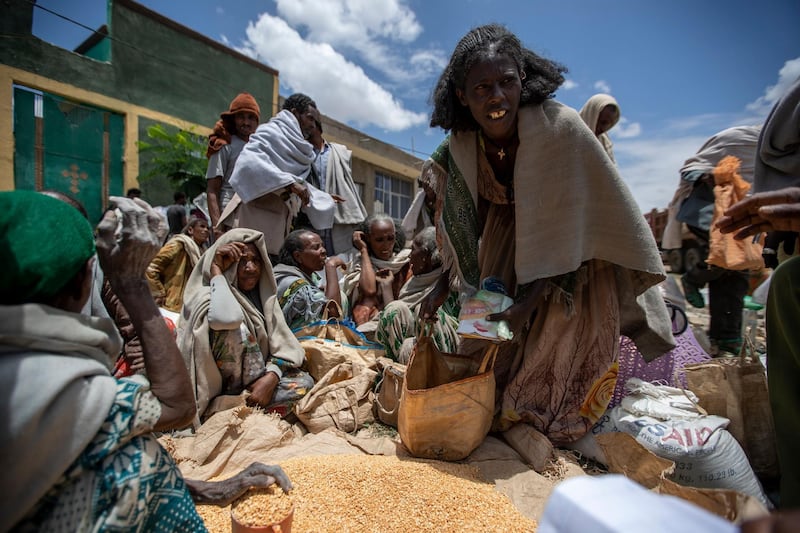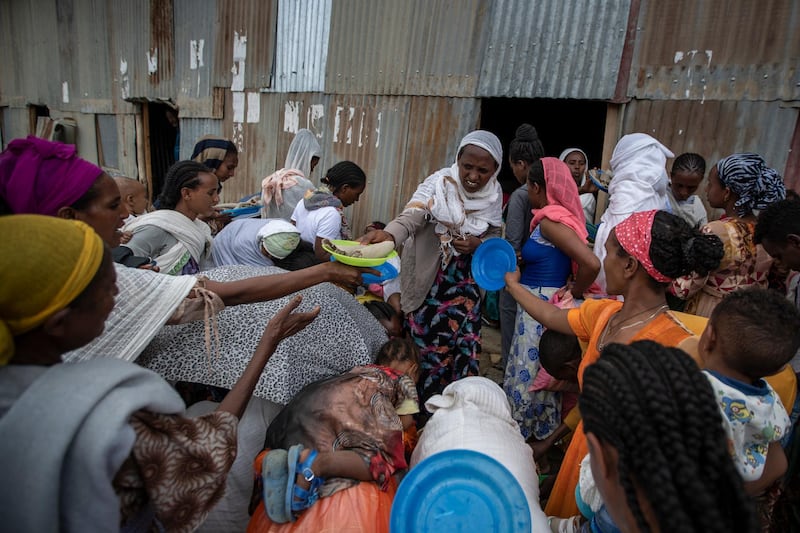US Secretary of State Antony Blinken met on Tuesday with African Union High Representative for the Horn of Africa Olusegun Obasanjo to stress the "urgency" of the crisis in Ethiopia’s Tigray region.
The State Department talks signal an increased diplomatic focus from President Joe Biden's administration on ending the conflict.
State Department spokesman Ned Price said the meeting stressed “the urgency of the situation" and he called for an immediate cessation of hostilities by all parties and a return to negotiations without preconditions.
“There is no military solution for the political crisis in Ethiopia,” Mr Price said.
He added the US is “considering a full range of tools at our disposal, including targeted economic sanctions” if a ceasefire is not reached.
Following the talks, Mr Obasanjo and Mr Blinken spoke with several other officials including Sudanese Prime Minister Abdalla Hamdok and representatives from France, Britain, the EU and Germany.
They "urged the parties to immediately end abuses and enter into negotiations toward a ceasefire to lay the foundation for a broader and inclusive dialogue to restore peace in Ethiopia and preserve the unity of the Ethiopian state," according to Mr Price.
Last November, the government of Ethiopian Prime Minister Abiy Ahmed, with the help of Eritrean troops and allied militias, launched a military offensive against the Tigray People's Liberation Front (TPLF).
Since the start of the war, more than two million civilians have been internally displaced and 5.2 million people are in urgent need of food aid, the UN has reported.
Humanitarian groups have reported war crimes, extrajudicial killings, ethnic violence, famine and rape in areas involved in the conflict.
Despite repeated calls by the international community for a ceasefire and the threat of US sanctions, Addis Ababa has continued with the military offensive.
On Friday, Reuters reported increased air strikes by the Ethiopian government against Tigrayan forces in the northern region of Amhara.
In another escalatory move, Ethiopia ordered the expulsion of seven senior UN officials after the world body warned of famine and accused the government of blocking aid deliveries to Tigray.
At the same time, Mr Abiy touted “new beginnings” for his country while being sworn in to a new five-year term last week.
Cameron Hudson, a senior fellow with the Atlantic Council's Africa Centre, said the best hope for the international community is for Mr Obasanjo to make progress on his diplomatic mission.
“The Obasanjo-Blinken meeting cuts both ways. Mr Obasanjo needs US support but he also needs to be seen as independent. If Ethiopia thinks he is taking direction from the US, it will undermine him in Addis Ababa, hence the US needs to give him support but not look like [Washington is] directing his efforts,” Mr Hudson told The National.
Mr Hudson saw potential US sanctions as an effective policy tool that could help the former president of Nigeria on his mission to pressure Ethiopia and Eritrea, and expected Mr Blinken to discuss the timing of such penalties with Mr Obasanjo.
UN: 'Worst fears confirmed' as 100,000 children in Tigray at risk of death from malnutrition

“Abiy started this final offensive in Tigray this week because he knows he is going to be brought to the negotiating table and he needs to be because the economy is hurting too much,” Mr Hudson said.
The 11-month war has taken a toll on Ethiopia’s economy, with inflation rising to 34.8 per cent in September, the highest in nine years. Annual food inflation stood at 37.6 per cent in August.
The US threatened last week to expel Ethiopia from the African Growth and Opportunity Act, which would further constrain its economy and cut its duty-free access to the US market for thousands of products.
Mr Obasanjo’s efforts are focused on pushing for an African-brokered solution to the conflict, but such a solution would need concrete steps from the Ethiopian government to bring about a ceasefire, Mr Hudson said.
Readmitting UN officials, rescinding the terrorist designations against the TPLF and Oromo Liberation Front, and lifting the aid blockade on Tigray are “essential first steps towards ceasefire talks and eventual political dialogue,” he added.
But with the clock ticking and the humanitarian crisis in Ethiopia continuing, US sanctions appear inevitable in a bid to punish the perpetrators and push for an end to the fighting.
